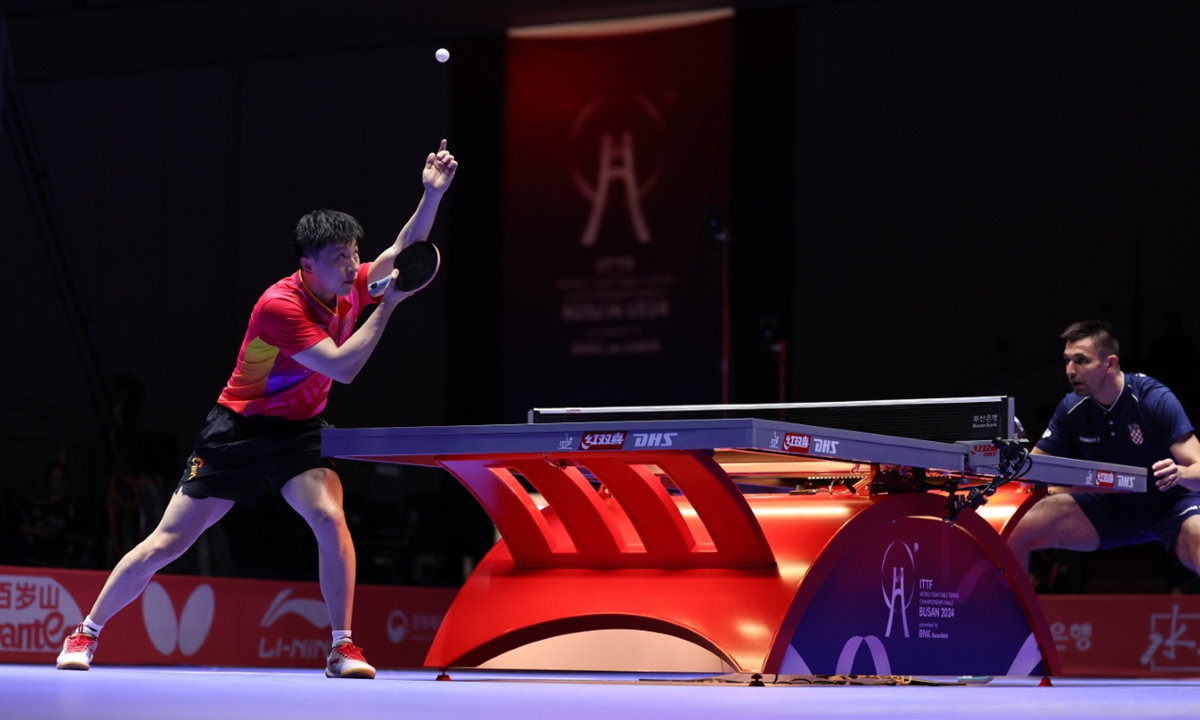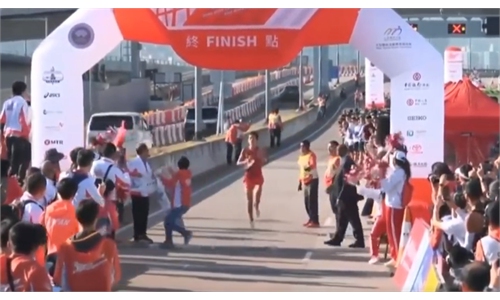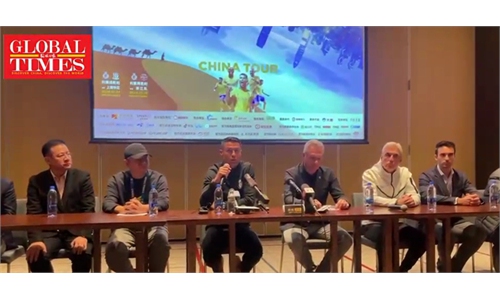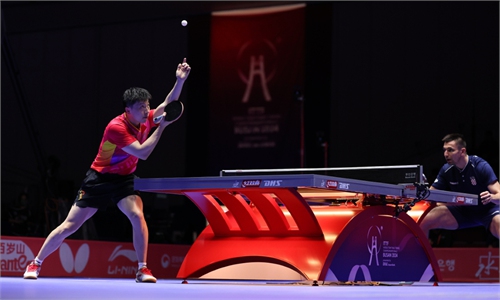SPORT / EYE ON THE BALL
New decision by ITTF beneficial to China, global table tennis development

Chinese table tennis player Ma Long plays in the men's team match against Croatia at the ITTF World Team Table Tennis Championships Finals in Busan, South Korea, on February 19, 2024. Team China won 3-0. Photo: VCG
Hawk-Eye technology will be officially implemented at the 2025 World Table Tennis Championships Finals to be held in Doha, Qatar, according to a decision made by the International Table Tennis Federation (ITTF) executive committee at their summit on Tuesday.
The table tennis review system is designed to improve the umpiring process by incorporating advanced technology. The utilization of Hawk-Eye aims to ensure a more precise enforcement of current rules. Instant video replays will be available for contentious decisions, enabling match video officials to carefully review and possibly reverse decisions based on concrete evidence.
The decision has been warmly received by Chinese fans and largely viewed as positive news for China. However, it is worth noting that the world table tennis powerhouse has remained unaffected by previous decisions or reforms by the ITTF, maintaining its dominance of the sport over recent decades thanks to its formidable overall strength.
The review system is meant to provide instantaneous replays, empowering video match officials to review and make more accurate decisions. But some fear that the technology might be exploited by certain malicious opponents who use the Hawk-Eye system to intermittently disrupt the rhythm of the game, thereby unsettling Chinese athletes.
The concern is unnecessary as China has weathered storms of reforms in the past and remained an invincible force on the international stage.
For the Chinese national table tennis team, the use of Hawk-Eye is undoubtedly more beneficial than detrimental. If Hawk-Eye were to be widely implemented, many controversies surrounding close calls and net touches would be rectified by a scientific and systematic approach.
Whether it's to promote table tennis development or curb China's dominance, Chinese table tennis teams have consistently faced various reforms and new regulations with composure, relying on the collective efforts of the team to drive the development of world table tennis.
Some of the notable reforms that aimed to level the playing field and add uncertainty to the game have included enlarging the size of the table tennis ball, removal of the hidden serve and adoption of the 11-point scoring system.
Currently, Hawk-Eye is widely used in fast-paced sports such as badminton, tennis, volleyball and rugby to reduce controversial calls.
VAR or Video Assistant Referee technology, which was implemented in soccer in 2018 with the aim of improving the accuracy of refereeing decisions, initially sparked heated debate but has proven to be more beneficial and a vital tool as it has since been gradually introduced into various competitions around the world, including domestic leagues and international tournaments.
It's true that everything has two sides but in this case, Hawk-Eye is expected to be a boon for the sport.
The author is a reporter with the Global Times. life@globaltimes.com.cn




